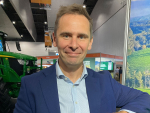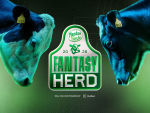A New Zealand dairy farmer who was recently in Ireland says the two countries are facing similar challenges.
Kieran Bourke, a South Taranaki dairy farmer farming at Bourke Clonlara in Pihama, was recently on a family holiday in Ireland with his wife Claire and their three children, Sienna, Fergus, and Declan.
Bourke says the market challenges faced by Kiwi farmers are like those faced by Irish farmers on both the market side and the environmental side.
“Their fertiliser use is a lot higher than a typical kiwi farm, but that is currently being squeezed downward,” he told Dairy News.
He says Irish farmers produce at a higher cost than New Zealand farmers, with a heavy reliance on government, subsidies and grants.
“With milk prices affected by high inflation in both New Zealand and Ireland, farmers need competitive advantage to remain as productive as possible.”
Bourke says that prior to leaving New Zealand, he had spotted an Ekochute online and had contacted the owner Francis Burns in County Donegal intending to purchase it.
“So, one morning the whole family set off on a six-hour journey from Cork to the factory of Eko Hoofcare, the manufacturers of the Ekochute,” he says.
Having brought the Ekochute back to New Zealand, Bourke says the biggest difference is that he’s able to treat cows safer and faster on-farm as it’s user friendly.
The chute has automated shutting, a self-locking head bar, double belly bands to support the cow, and front and rear leg supports that are safer for the operator and cow. It also has a fully enclosed base.
“Like most farms in New Zealand, we used to just treat the lameness when it happened,” he says. “We would mark the cows with overgrown hooves or repeated lameness before the professional trimmer would come in and do up to 100 cows.
“However, now that we have easy to use, safe equipment, we can do hoof trimming ourselves and we are slowly adopting preventative trimming as the norm. It’s become a pleasure rather than a chore.”
He says it’s difficult to carry out effective treatment if you don’t have the right equipment to do it. “If you’re wanting to be able to trim hooves comfortably and safely, then invest in an Ekochute manual crush,” Bourke says. “Unlike other chutes, it wasn’t designed by an engineering company, but by a professional hooftrimmer, Francis, who could see better equipment would make the job a lot easier and more efficient.”
Bourke will be hosting a Zoom webinar on preventative hoof trimming for NZ farmers at 7.30pn on 4 December. To express interest, head to: https://form.jotform.com/Francis_Burns/PreventingLamenessWebinar.


















